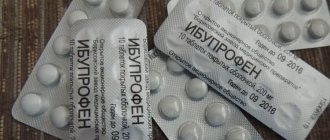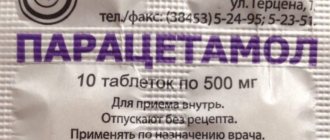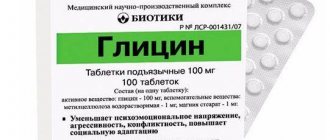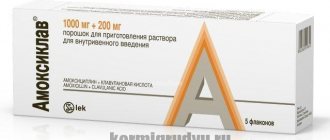Author of the article: Tironova Inna Igorevna
Gastroenterologist, therapist
15 years of experience
Professional skills: Colon hydrotherapy, treatment of gastrointestinal diseases
[adsp-pro-1]
Despite careful adherence to the diet in the postpartum period, a nursing woman may experience eating disorders that require taking various medications. Naturally, this causes considerable concern. After all, most of the components that make up the drugs penetrate into the bloodstream and milk, and therefore into the baby. But there are also medications that are not so aggressive, for example, Activated carbon, which can be used during breastfeeding.
Properties and Application
This is a sorbent of organic origin that binds toxic and allergic elements from the stomach and intestines. It works exclusively in the gastrointestinal tract, gently affecting the body and without causing any harm to it.
Within half an hour after administration, a therapeutic effect is observed. After the adsorption of harmful substances, the enterosorbent is released naturally along with the elements captured by it, is not absorbed into the bloodstream and does not have a negative effect on the intestinal environment. Activated carbon is available to patients: the product is available without a prescription and is not expensive. During the period of breastfeeding, it is a real salvation from colic, increased gas formation, diarrhea, and poisoning.
Externally, the adsorbent resembles black powder, without a pronounced taste or smell. It does not dissolve in water or other liquids. It is produced in several forms: capsules, tablets, powder composition.
Activated carbon is indicated for lactation during:
- Poisoning (with frequent loose stools and vomiting).
- Flatulence (the drug perfectly adsorbs gases).
- Dyspepsia, accompanied by pain and discomfort.
- Fermentation processes occurring in the intestinal area.
- Intestinal infections.
- Allergic reactions, atopic dermatitis, bronchial asthma (as an additional therapeutic agent).
[adsp-pro-2]
The adsorbent is also prescribed for:
- Liver pathologies.
- Intoxication with narcotic, medicinal, and alcoholic substances. Poisoning with salts of heavy metals.
- Kidney failure.
- Burn and radiation sickness.
- Infectious lesions of the gastrointestinal tract.
[adsp-pro-3]
It neutralizes the effect of various allergens, eliminates chemical toxins and gases by adsorbing them. Indications for the use of coal may include diagnostic studies of a woman’s internal organs using ultrasound or x-rays. This will get rid of the accumulation of gases and increase the accuracy of the data obtained.
Important! Nursing women should take into account that the action of activated carbon is aimed at absorbing and removing both dangerous and vital elements (vitamins and minerals). Therefore, during lactation you should not use it unless absolutely necessary.
Mode of application

Whether a digestive disorder can affect the baby’s well-being depends on the reasons that provoked it. But in any case, Activated carbon will not be superfluous for nursing mothers during illness. The main thing is to follow the prescribed dosage and follow the recommendations of specialists who will help avoid complications and unpleasant consequences.
The maximum daily dosage of tablets is calculated depending on the severity and type of pathology:
- For food poisoning during breastfeeding, you are allowed to take 10 tablets/capsules. The optimal dosage is determined based on body weight: per 10 kg - 1 tablet (0.25 g).
- If the situation is not terrible, for example, mommy has allergies, colic, flatulence, bloating, you can limit yourself to 0.25 mg per 30 kg (2-3 tablets).
- For diarrhea that lasts several days, taking the drug can be continued for several days.
- If you are allergic to any food product, treatment lasts about two weeks. Here the dosage is calculated by the doctor, who talks about taking activated carbon in detail.
[adsp-pro-4]
When breastfeeding, it is advisable to take charcoal when the baby has eaten (as soon as possible after feeding). It is not necessary to express before the next feeding, but if you have doubts about the quality of milk, you can express your breasts a little, not forgetting to make up for the loss by drinking plenty of fluids (chamomile tea has a very good effect on the body). It is not recommended to take the medication entirely. The tablets must be crushed and diluted in warm (not cold or too hot) water.
Dosage during lactation
The dosage of activated carbon preparations during breastfeeding of a baby depends on the severity of the pathology identified in the nursing mother and on its clinical manifestations:
- In order to get rid of flatulence and a feeling of bloating , one tablet (weighing 0.25 g) of activated carbon for every thirty kilograms of body weight is enough. In this case, the drug can be taken once or two or three times during the day.
- In the presence of dyspeptic disorders , characterized by painful and difficult digestion, the frequency of taking activated carbon is three to four times a day. The duration of the course of treatment, as a rule, is no more than five days.
- When treating all types of mild poisoning, it is necessary to increase the dosage of the sorbent, taking one tablet for every ten kilograms of live weight. For example, if a nursing woman weighs 50 kg, she needs to take five tablets at a time, thoroughly crushed into powder and diluted with boiled water (taking the drug in the form of an aqueous suspension greatly facilitates this process). The recommended daily dose of activated carbon should not exceed ten tablets, and the duration of the therapeutic course cannot be more than two weeks.
- The permissible daily dose of sorbent during the treatment of acute poisoning is 8 g (or 32 standard tablets). In the most severe cases, a nursing mother may be advised to take a loading dose of the sorbent, when she needs to urgently take 30 g (or 120 tablets) at a time. After this, qualified infectious disease specialists advise stopping breastfeeding the baby until the mother’s body is completely cleansed of toxic substances.
- Treatment of allergic diseases is long-term and takes at least 14 days.
- In case of poisoning with drugs or chemicals, activated carbon can be used to lavage the stomach. One tablespoon of tablets, ground into powder, is mixed with 1000 ml of boiled water. The patient should take the resulting suspension in 100-200 ml doses. Activated carbon preparations have the maximum positive effect during the first twelve hours after poisoning. If it is not possible to cope with the clinical manifestations of poisoning within 48 hours, the nursing mother should definitely see an experienced infectious disease specialist.
All of the above recommendations are only general in nature, since only the treating specialist should prescribe exact dosages in each specific case.
If it is necessary to take sorbents for a long time, the doctor may prescribe white coal to a nursing mother - a medicine that is an analogue of activated carbon and has a number of important advantages.
Unlike its black counterpart, it is endowed with selective sorption activity, allowing it to absorb and remove only toxic substances from the body.
Contraindications
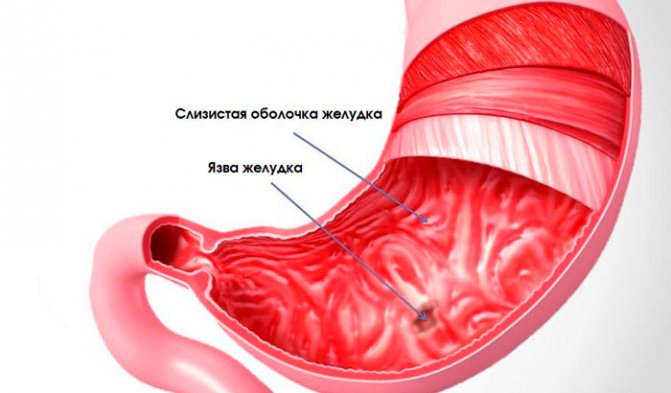
Like any medication, this enterosorbent has its own list of restrictions for use. Activated carbon should not be used when feeding women if:
- Hypersensitivity to the active ingredients in the sorbent.
- Hypotonicity of the intestinal muscles.
[adsp-pro-5]
Also, nursing mothers should not take Activated Charcoal if there is an exacerbation of a stomach/duodenal ulcer or if internal bleeding is suspected.
[adsp-pro-6]
You can use charcoal as a sorbent during breastfeeding if you do not use other sorbent medications. Whether a nursing mother should take this drug is decided by a specialist after examination and diagnosis.
Indications for the use of activated carbon during lactation
You can drink activated charcoal while breastfeeding if the following pathologies are diagnosed:
- allergies caused by food or medications;
- acute intestinal infections, including those caused by salmonella and shigella;
- poisoning with various drugs, including sleeping pills and narcotics, antipsychotics;
- gastrointestinal diseases accompanied by nausea, vomiting, indigestion and flatulence;
- increased bilirubin associated with liver dysfunction;
- a large amount of nitrogen-containing substances in the body, resulting from kidney problems.
Breastfeeding mothers can take activated charcoal before undergoing sonography and radiography of the abdominal cavity in order to reduce the amount of gases in the intestines that interfere with getting a clear picture of the internal organs.
Side effects
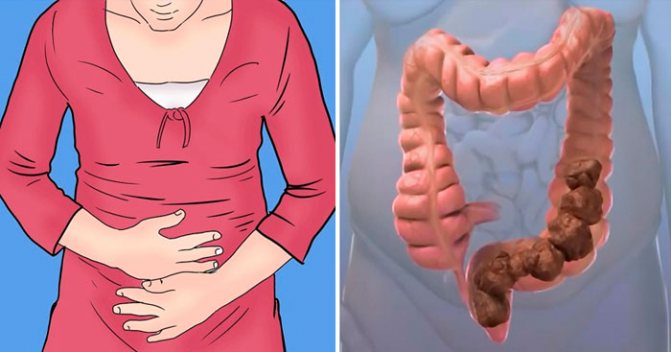
When treating digestive disorders and other pathological processes that disrupt the gastrointestinal tract, a woman is not immune from adverse reactions to Activated Carbon. This:
- Digestive disorders of various origins.
- The appearance of constipation or diarrhea. Difficulty with bowel movements is an unpleasant problem that is also dangerous for the child. Delayed bowel movements lead to stagnation, which results in the accumulation of potential allergens that are dangerous to the baby.
- Black color of stool.
- Impaired absorption of nutrients that the newborn will not receive at the next feeding. And in case of an overdose, the mother’s body will not be able to absorb proteins, lipids, and carbohydrates in sufficient quantities, which sometimes leads to hormonal imbalance.
[adsp-pro-7]
Adsorbents weaken the effect of other medications that are taken together with them. Therefore, black capsules/tablets should be taken an hour and a half before taking medications to avoid reducing their therapeutic effect.
Important! Vitamin deficiency, immunosuppression, exhaustion of the body, disruption of the intestinal environment are the consequences of prolonged consumption of coal.
Analogs
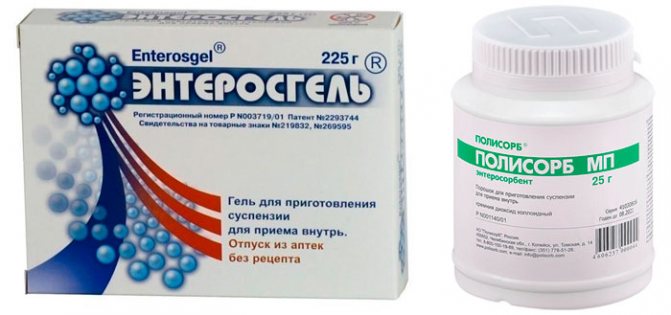
Experts are ambivalent about the use of activated carbon for newborns with the development of colic, flatulence, and allergic reactions. If previously it was given from the first days of life, now it is recommended to take it only after reaching the age of three. In the pharmacy chain you can find safer and more modern intestinal adsorbents suitable for infants and nursing mothers:
- Smecta . It is used for acute and chronic intestinal infections, various poisonings, and gastrointestinal disorders.
- Enterosgel . Also considered safe for breastfeeding women. The drug successfully removes toxins regardless of their origin. However, it does not affect the functioning of the intestines and does not interfere with the absorption of beneficial elements, which cannot be said about treatment with activated carbon.
- Atoxyl . Another product that belongs to enterosorbents. This medicine is used during breastfeeding for acute intestinal diseases accompanied by diarrhea syndrome, as well as in the complex treatment of liver pathologies.
- Polysorb . Indicated for symptoms of poisoning, intoxication, toxicosis, allergic manifestations, gastrointestinal disorders. It is superior in efficiency to many analogues. The dosage of the drug is calculated depending on the pathological condition after consulting a doctor.
When breastfeeding for a baby, charcoal remains a safe and acceptable remedy that does not in any way affect its condition. If you need to use a sorbent, you should not refuse it, hoping that the body itself will be able to cope with the problem. Although many reviews indicate that most women prefer to be treated with modern drugs, Activated carbon remains an equally popular and effective time-tested remedy.
[adsp-pro-9]
( 1 ratings, average: 5.00 out of 5)
Reception features
This drug can be taken during pregnancy to ease the work of the liver and kidneys and help the body easily tolerate toxicosis.

In case of acute poisoning or intestinal disorder, it is recommended to use the sorbent in a therapeutic dose, that is, calculate the number of tablets based on body weight (ratio 1:10) for 1-1.5 weeks, for a nursing mother - no more than 3-5 days. If there is no visible result, you should consult a doctor, since an internal infection that is not eliminated in time can lead to serious complications. This leads to the need for treatment with strong antibacterial drugs, which exclude the possibility of breastfeeding.
In order to get the maximum benefit from the drug, you need to take it when the first signs of poisoning or intestinal disorder are detected.
During lactation, some antiallergic medications are prohibited. In case of allergies, a nursing woman is allowed to take 1-2 tablets of adsorbent at intervals of 2-3 hours during the day.
The main rule when taking sorbent is not to use it simultaneously with other drugs , as this entails a decrease in their effectiveness. It is necessary to take charcoal and other medications within an interval of 1-2 hours.
In case of severe poisoning, allergies or acute intestinal infection, it is necessary to undergo a medical examination to learn about the peculiarities of taking activated carbon during hepatitis B.
The sorbent allows you to increase immunity, restore the body after childbirth and lactation, avoid damage by viruses and bacteria, and also completely cure stomach or intestinal disorders.
